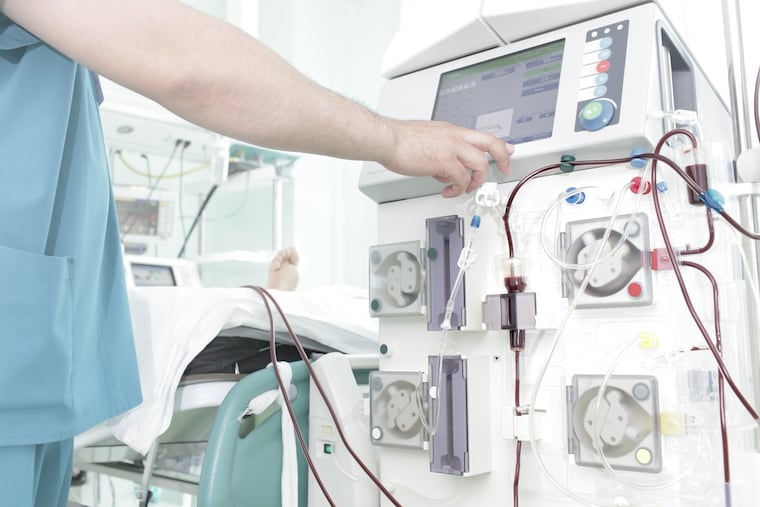Private health insurers paid four times more than Medicare for dialysis treatment, study finds
As health care costs continue to rise, employers and their workers are demanding information that can help them determine if they’re paying fair and reasonable rates for care.

Private health insurers paid one of the nation’s largest dialysis companies treatment rates that were four times more than Medicare and Medicaid, according to an analysis by researchers at UCLA.
A research letter detailing their findings was published online Monday by JAMA Internal Medicine.
The context
Private insurers commonly pay more for health-care services than Medicare or Medicaid, but exactly how much more is often hard to pin down because commercial rates are considered proprietary information. But as health-care costs continue to rise, employers (who subsidize their workers’ health costs) and individuals (who are paying an ever-increasing share of those costs) are hungry for information that can help them determine whether they’re paying fair and reasonable rates for care.
A recent Rand Corp. report, for example, found that employer-sponsored health plans pay 2.4 times the Medicare rate for hospital services.
Researchers at UCLA sought to find out how those discrepancies shake out for dialysis, an increasingly prescribed kidney failure treatment that removes waste from a patient’s blood when the kidneys are no longer able to do so. The market is dominated by two for-profit companies — Fresenius Medical Care and DaVita Kidney Care.
The data
Researchers used publicly available annual financial statements for DaVita from 2010 through 2017 to analyze the volume of dialysis patients and treatments, and payment amount for commercial and government payers.
The company, which controls about 38 percent of the dialysis market, had 2,510 clinics across the country, which saw nearly 200,000 patients in 2017 and provided about 28.3 million treatments.
The funding
The study’s lead author, Christopher Childers, a general surgery resident at UCLA, is supported by a grant from the Agency for Healthcare Research and Quality.
The results
DaVita reported revenue for dialysis and laboratory services of $9.36 billion in 2017. That comes to $47,321 a patient a year, or $331 per treatment.
But not everyone paid the same price.
Patients with private health insurance accounted for 10.5 percent of DaVita’s volume, while accounting for 33 percent of DaVita’s dialysis revenue in 2017, according to researchers’ analysis.
Commercial insurers paid $148,722 a patient in 2017, or $1,041 a treatment.
The government, meanwhile, paid $35,424 a patient that year, or $248 per treatment.
The caveats
Private insurers may pay for dialysis services differently, skewing results.
Researchers also noted a discrepancy in the price DaVita has reported that Medicare pays per dialysis treatment ($269) and the price reported by the Medicare Payment Advisory Committee ($243), which researchers said could reflect inaccuracies in the Medicare cost reports or DaVita’s financial statements. The per treatment price researchers estimated that Medicare paid ($248) is closer to Medicare’s own estimate.
DaVita did not respond to a request for comment in time for publication.